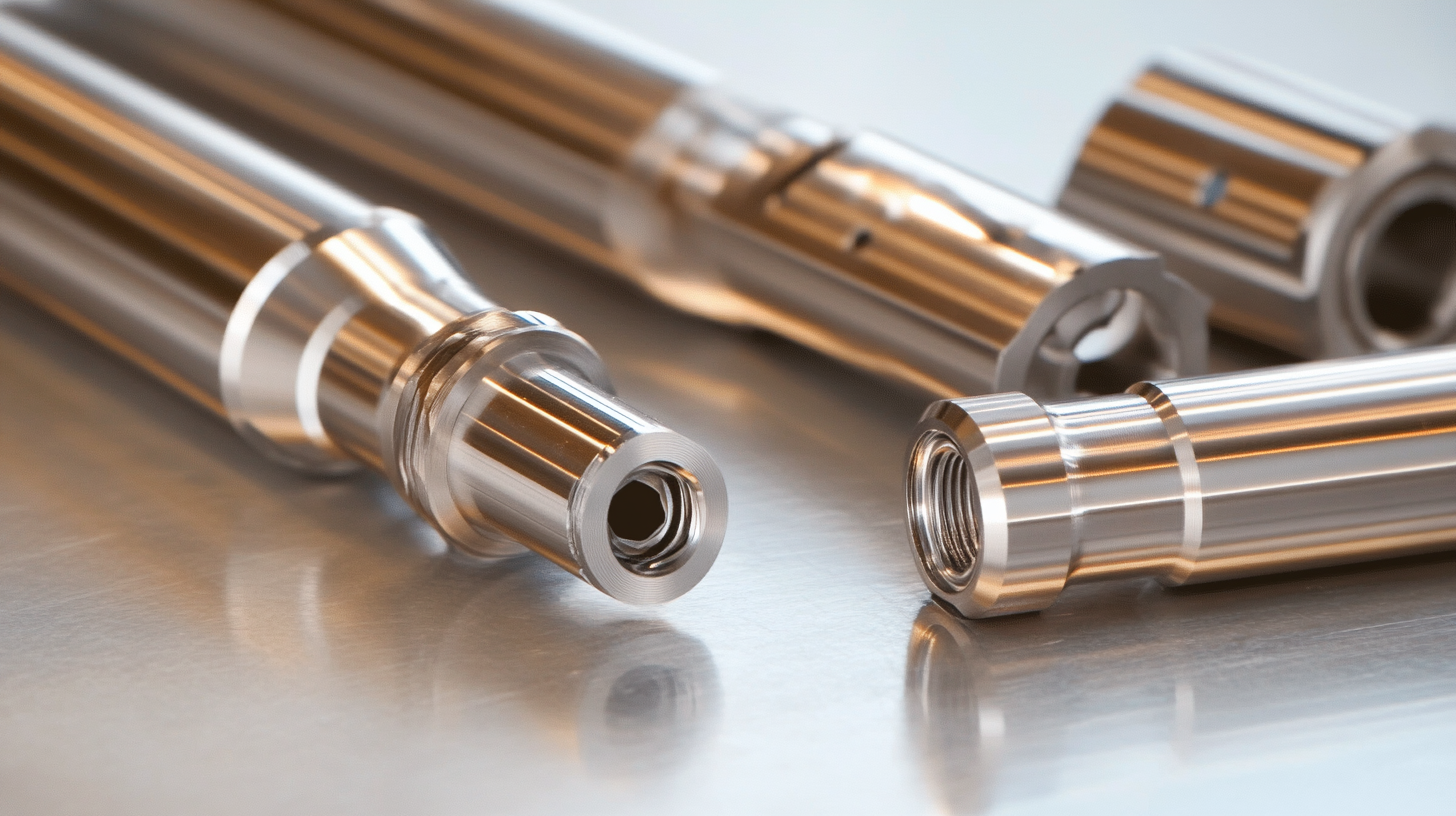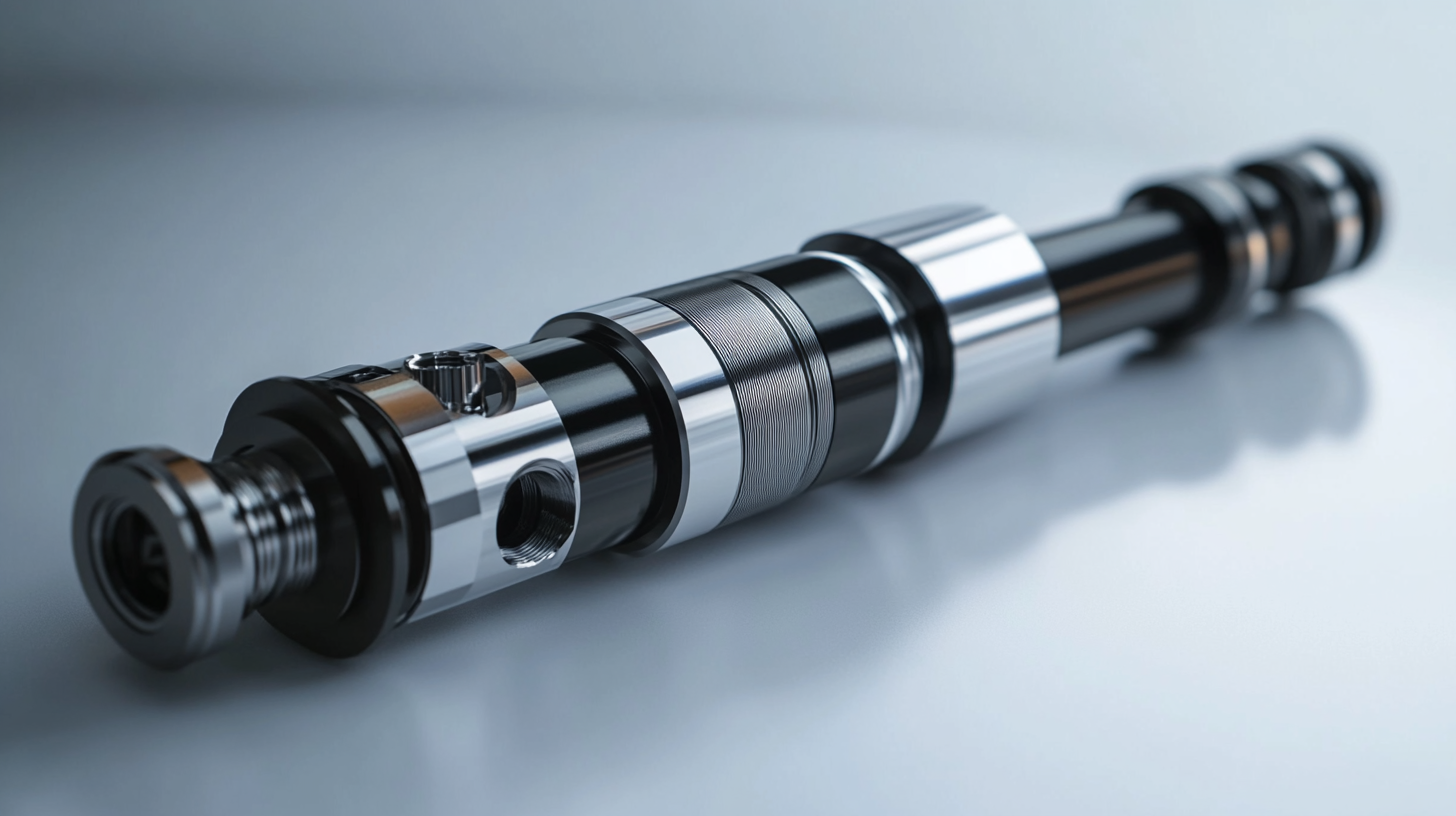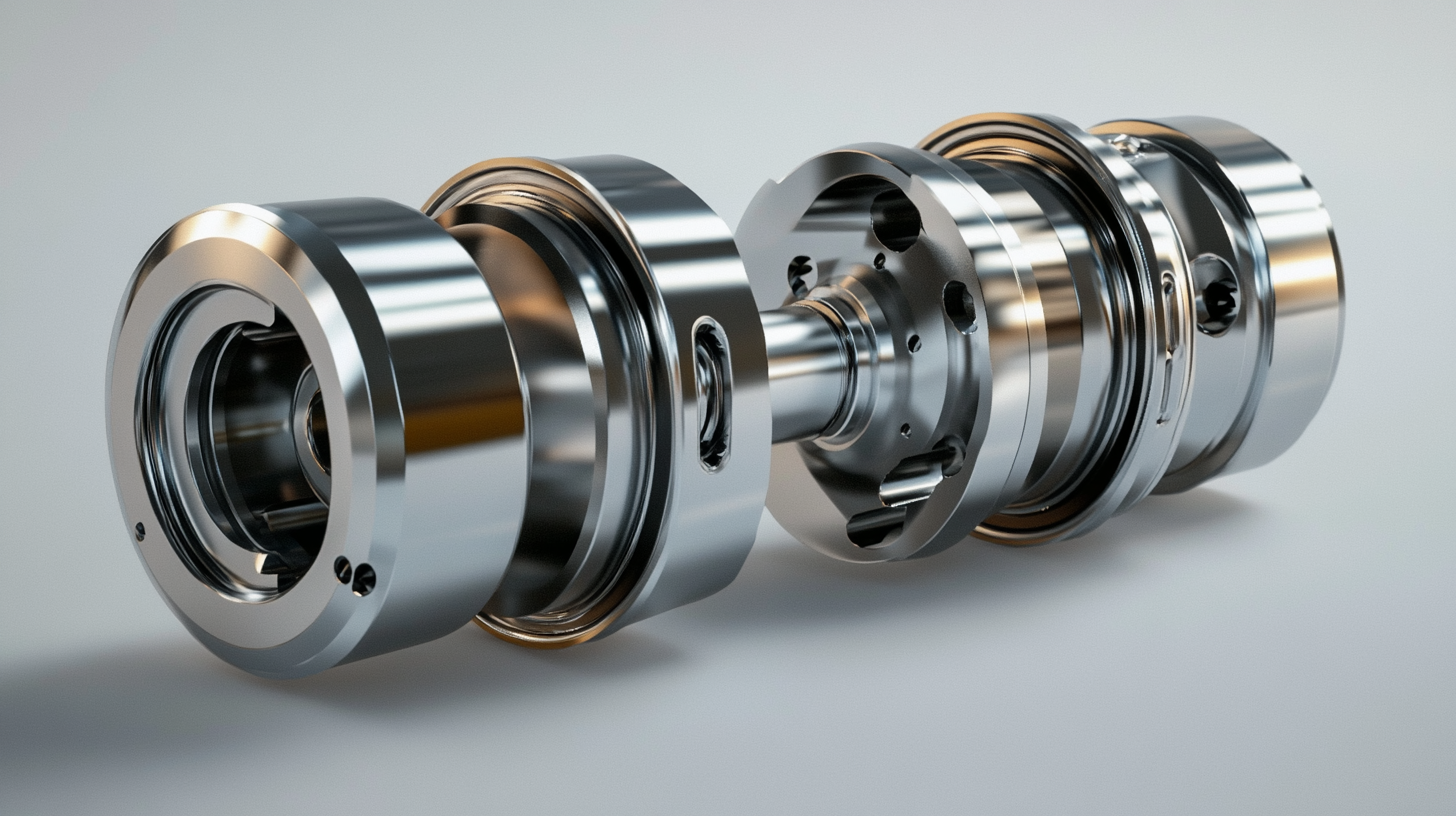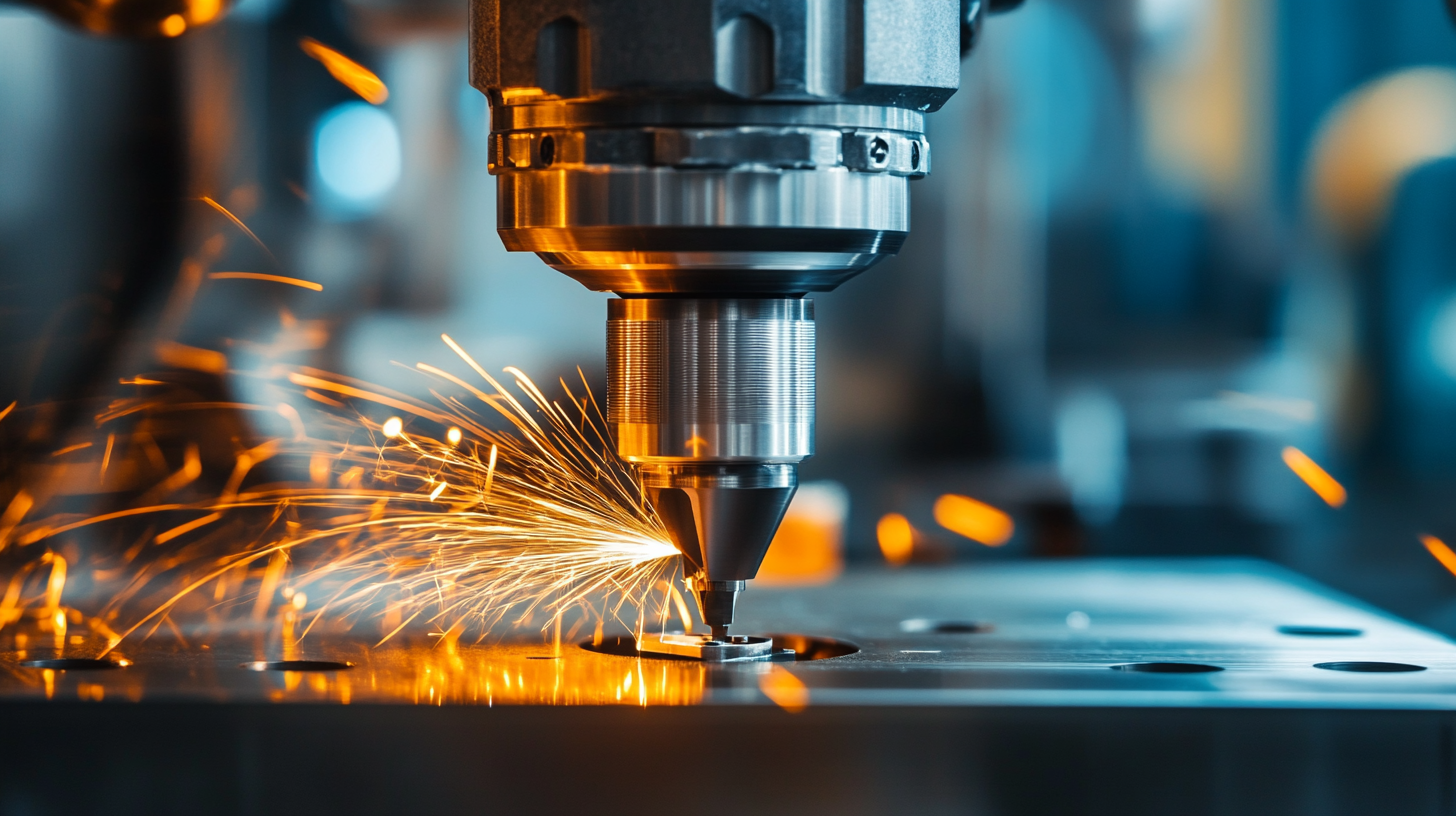SUNDI TOOLS
- Copyright © Wuxi Sundi Precision Tools Co.,LTD All rights reserved.
- Site Map
In the realm of precision machining, the choice of cutting tools plays a pivotal role in determining the efficiency and quality of the final product. Among the various options available, Cbn Cutting Tools have emerged as a powerful solution for manufacturers seeking enhanced performance and durability. CBN, or Cubic Boron Nitride, is renowned for its exceptional hardness, thermal stability, and resistance to wear, making it a preferred choice for machining hard materials and achieving tight tolerances. As industries demand ever-increasing precision and productivity, Cbn Cutting Tools stand out as a game changer that meets these challenges head-on.
The advantages of utilizing Cbn Cutting Tools extend beyond mere tool longevity. These cutting tools enable faster machining speeds and greater feed rates, which significantly reduce production times while improving surface finishes. Furthermore, their unique properties allow for improved chip removal and reduced cutting forces, resulting in less thermal deformation and longer machine life. In this blog, we will delve deeper into the myriad benefits of Cbn Cutting Tools, exploring their impact on efficiency, cost-effectiveness, and the overall quality of precision machining efforts.

CBN (Cubic Boron Nitride) cutting tools have emerged as a game-changer in precision machining, offering several advantages over traditional options. One of the most significant benefits is their exceptional hardness, which allows for high-speed machining with excellent wear resistance. This durability not only extends the tool life but also results in greater efficiency, reducing the frequency of tool changes and minimizing downtime in manufacturing processes. Another vital advantage of CBN cutting tools is their ability to maintain dimensional accuracy and a superior finish on parts. Due to their sharp cutting edges and stable performance at elevated temperatures, CBN tools minimize thermal distortion and provide better surface quality compared to conventional cutting materials. This precision is particularly beneficial in industries where tight tolerances are critical, ensuring that components meet stringent quality standards. Moreover, CBN cutting tools are compatible with a wide range of materials, including hardened steels and superalloys, which are commonly used in aerospace, automotive, and tooling applications. Their versatility makes them an ideal choice for manufacturers looking to streamline operations and enhance productivity. By leveraging the unique properties of CBN, businesses can achieve higher output rates while maintaining the precision required in today’s competitive market.

In the world of precision machining, the choice of cutting tools can significantly influence performance and efficiency. Cubic Boron Nitride (CBN) cutting tools have become increasingly popular due to their unique properties. Notably, CBN tools offer superior hardness, surpassing that of conventional carbide tools, making them ideal for machining hardened materials. According to a recent industry report by TechSci Research, the global market for CBN tools is projected to grow at a CAGR of 5.5% from 2021 to 2026, underlining the rising demand for increased tool life and performance in manufacturing processes.
The role of CBN in enhancing tool life is particularly noteworthy. CBN cutting tools exhibit exceptional wear resistance and thermal stability, allowing them to maintain their cutting edge longer than traditional materials. A study published in the Journal of Manufacturing Processes reveals that CBN tools can last up to five times longer than comparable carbide tools when machining hard steel, significantly reducing tooling costs and downtime for manufacturers. This longevity not only translates into economic benefits but also promotes sustainable manufacturing practices by minimizing waste.
In addition to extending tool life, CBN tools contribute to improved surface finish and dimensional accuracy. These advantages arise from their ability to operate at higher cutting speeds and lower friction levels. Research from the American Society of Mechanical Engineers indicates that using CBN tools can enhance surface integrity, reducing the need for secondary finishing operations. As industries continue to seek efficient and sustainable solutions, the adoption of CBN cutting tools is set to rise, cementing their role in the future of precision machining.

In precision machining, the choice of cutting tools can significantly impact productivity and quality. Among the options available, Cubic Boron Nitride (CBN) cutting tools have emerged as a formidable alternative to traditional carbide tools. According to a recent industry report by the International Journal of Advanced Manufacturing Technology, CBN tools offer improved wear resistance and thermal stability, which result in longer tool life—often up to 50% more than conventional tools in high-speed machining applications.
One of the standout advantages of CBN cutting tools is their ability to maintain sharp edges and reduce thermal deformation, which enhances machining precision. A study from the University of Massachusetts Dartmouth revealed that machining with CBN tools can achieve surface finish improvements of up to 60% compared to carbide tools. This not only elevates the quality of the final product but also reduces the need for secondary operations, streamlining manufacturing processes.
Furthermore, the performance of CBN tools shines in hard materials, such as hardened steel and exotic alloys, where traditional tools struggle. A comparative analysis in the Journal of Materials Processing Technology indicates that CBN tools can maintain cutting speeds of up to 200 m/min in these challenging materials, drastically enhancing efficiency in manufacturing settings. This capability positions CBN tools as game-changers, particularly in industries where precision and durability are paramount, such as aerospace and automotive engineering.

CBN (Cubic Boron Nitride) cutting tools have gained significant traction in various industries due to their exceptional hardness and thermal stability, making them ideal for precision machining applications. According to a recent report by MarketsandMarkets, the global CBN cutting tools market is projected to reach USD 1.7 billion by 2025, expanding at a CAGR of 7.5%. This growth is primarily driven by their increasing use in the automotive and aerospace sectors, where precision and durability are paramount.
In the automotive industry, CBN tools are particularly advantageous for machining hardened steel components. A study published in the Journal of Manufacturing Processes highlights that the use of CBN tools can improve tool life by up to 300% when machining materials with high hardness levels, such as bearings and gears. These tools not only enhance productivity but also contribute to tighter tolerances, resulting in better performance and fuel efficiency of automotive parts.
Similarly, in the aerospace sector, where components are often subjected to extreme conditions, CBN tools provide reliable performance. The American Machinist reported that manufacturers utilizing CBN for turbine blade machining could achieve surface finishes that are 50% smoother compared to conventional carbide tools. This improved finish is crucial for reducing drag and ensuring the longevity of engine components, thereby reinforcing the importance of CBN tools in critical applications.
As the manufacturing industry continues to evolve, CBN (cubic boron nitride) technology is gaining significant traction in precision machining. The application of CBN cutting tools not only enhances tool life but also revolutionizes the way materials are processed. With the ability to withstand high temperatures and resist wear, CBN tools are particularly advantageous for machining hard materials like hardened steel and superalloys. This advanced technology presents a promising outlook for the future of precision machining, enabling manufacturers to achieve tighter tolerances and improved surface finishes.
The future of CBN technology is not just about improving existing processes but also about innovation in tool design and manufacturing techniques. Ongoing research and development aim to refine the properties of CBN, making it more accessible and versatile for different industrial applications. The integration of smart manufacturing and Industry 4.0 concepts can further enhance CBN tool performance by utilizing real-time data to optimize machining parameters. As the demand for precision and efficiency grows, we can anticipate an increasingly significant role for CBN technology in shaping the future landscape of precision machining.
With sustainable practices becoming paramount, CBN cutting tools also align with eco-friendly manufacturing goals. Their extended tool life results in less waste and reduced resource consumption, supporting a more sustainable approach to production. As manufacturers embrace these advancements, CBN technology stands poised to transform precision machining, driving productivity while meeting stringent environmental criteria.